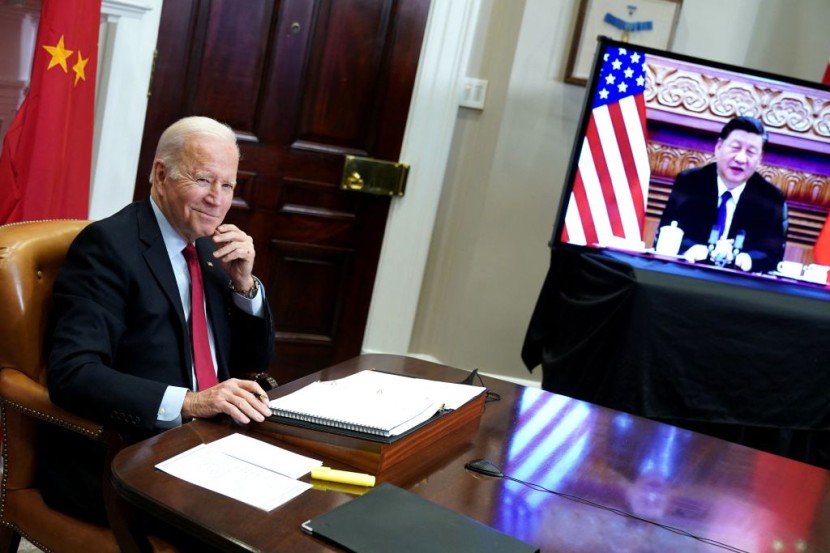
United States President Joe Biden and Chinese President Xi Jinping engaged in a call on Friday morning wherein the two most influential leaders talked about the Russian invasion of Ukraine.
The call started after 9 a.m. Eastern time and lasted for almost two hours, which is an unusual length of a phone conversation between two rival leaders.
According to the Chinese Ministry of Foreign Affairs' initial statement of the call, Xi stressed that both the US and China were responsible for promoting peace.
The White House said Biden explained the ramifications and "consequences" if China gives material support to Russia during the phone call.
While Washington did not provide detail on the consequences or how the US would define "material support," press secretary Jen Psaki indicated China's immense trade flows could be affected.
Pentagon sources reported that Moscow had sought Beijing for military and economic support in its campaign against Ukraine, and initial intelligence reports indicate that China has agreed.
According to US sources, China is unlikely to send Russia with major offensive weapons such as tanks or jets. Instead, officials anticipate China will send smaller supplies like food, ammo, spare parts, or monitoring equipment. But officials believe that China may provide financial assistance to Russia to let it cope with the impacts of Western sanctions, though it's unclear that the move will be able to mitigate the effects of the US and European sanctions.
Despite the unfriendly relationship between Washington and Beijing, the conversation between Biden and Xi was more productive than experts had predicted, according to a Chinese government readout as reported by CNBC.
The US, China Need To Coexist
The second readout released on Friday afternoon said that Xi and Biden "share the view that China and the US need to respect each other," "coexist in peace," refrain from confrontation and "improve communication and dialogue."
According to China's foreign ministry, Xi told Biden that the war in Ukraine must end the soonest time possible and called on NATO member nations to hold a dialogue with Moscow. He did not, however, blame Russia for the invasion, based on Beijing's statements about the call per Bloomberg report.
Xi underscored the "top priorities" of the moment: to sustain the diplomatic talks, protect civilian lives, and "prevent a humanitarian crisis, cease firing," and "end the war as soon as possible."
The Chinese President also called for Russia-Ukraine diplomacy and recommended that the US and NATO hold talks with Russia to settle the "core issue" of the Ukraine situation and come up with solutions for the security concerns of both countries.
China-Taiwan Tensions Also Tackled
Xi also issued a warning to Biden regarding China's issue with Taiwan. He said that the United States "misread and misjudged" the intentions of Beijing. He noted that if the issue will not be addressed "properly," the ties between the two countries will sustain a "subversive impact."
However, Biden, according to a White House statement, "reiterated that US policy on Taiwan has not changed, and emphasized that the United States continues to oppose any unilateral changes to the status quo."
Recently, Beijing has ramped up military flights near the island in dispute and warned against US involvement as per CNN report. Even if it did not appear that a Chinese invasion of Taiwan was likely in the early stages of the Ukraine crisis, there were suspicions that the Russian invasion might precede one.
Related Article: China: Experts Predict Major Economic Impact of COVID-19 Lockdown, But Xi Jinping Vows To Minimize Hit
© 2026 HNGN, All rights reserved. Do not reproduce without permission.








